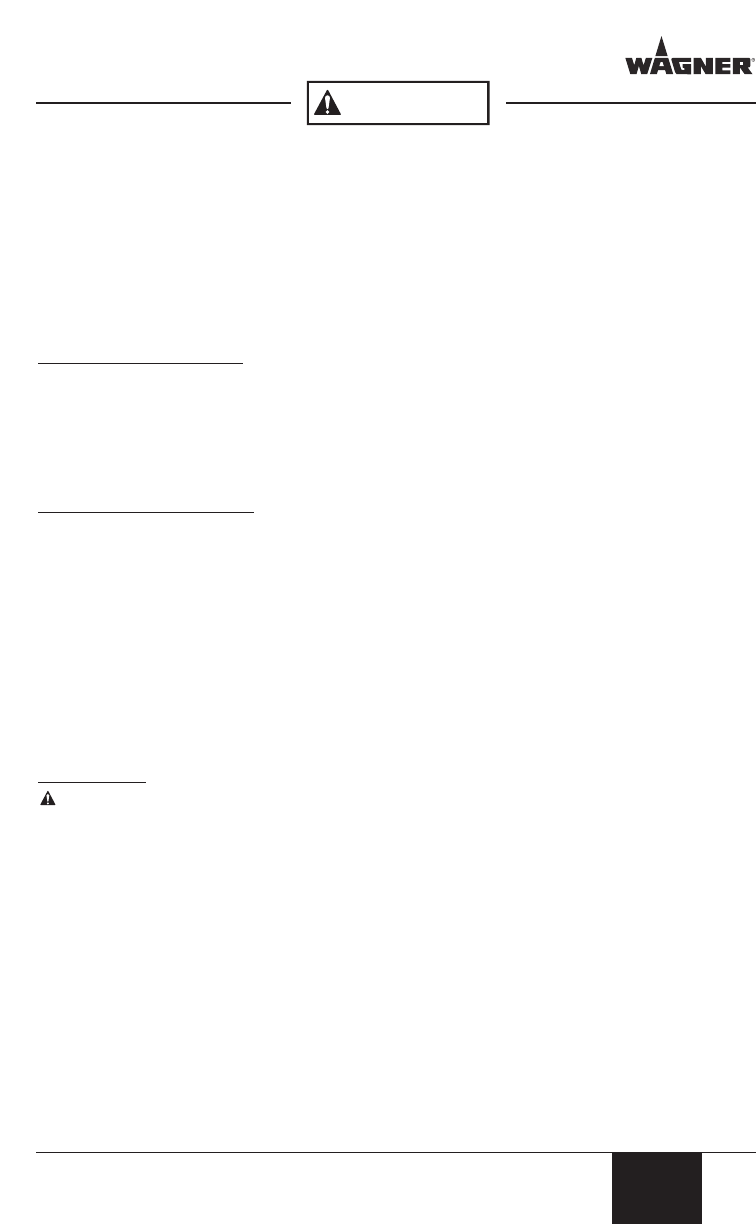
English
5
WARNING
• An NIOSH/OSHA-approved respirator should be worn by all persons entering the
work area. The filter should be replaced daily or whenever the wearer has difficulty
breathing. See your local hardware dealer for the proper NIOSH approved mask.
• NO EATING, DRINKING OR SMOKING should be done in the work area to prevent
ingesting contaminated paint particles. Workers should wash and clean up
BEFORE eating, drinking, and smoking. Articles of food, drink, or smoking should
not be left in the work area where dust would settle on them.
Environmental Safety
• Paint should be removed in such a manner as to minimize the amount of dust
generated.
• Paint removal should be done in a manner to reduce tracking of paint dust outside
the work area.
Cleaning and Disposal
• All surfaces in the work are should be vacuumed and thoroughly cleaned daily for
the duration of the sanding project. Vacuum filter bags should be changed
frequently.
• Plastic drop cloths should be gathered up and disposed of along with any dust chips
or other removal debris. They should be placed in sealed refuse receptacles and
disposed of through regular trash pick-up procedures. During clean up, children and
pregnant women should be kept away from the immediate work area.
• All toys, washable furniture and utensils used by children should be washed
thoroughly before being used again.
Disc Safety
WARNING - FAILURE TO FOLLOW INSTRUCTIONS AND SAFETY INFORMATION CAN
RESULT IN PERSONAL INJURY. DO NOT USE THE PAINT EATER™ TO REMOVE PAINT
CONTAINING LEAD.
• Always wear safety glasses.
• For applications that could create airborne dust, provide appropriate local exhaust or
dust capture. Wear an appropriate NIOSH/OSHA-approved respirator to help
reduce contaminant exposures. Excessive inhalation of certain dust particles can
cause serious injury.
• Sanding with any power tool can be hazardous to the operator or to bystanders.
Sanding particles or sparks can result in injury to eyes or other parts of the body not
protected by adequate safety equipment. Direct particles and sparks down and
away from face and body.
•
Remove flammable materials from the work area.
•
Do not use abrasives with nicks, cuts, tears, or badly curled or cupped edges.
• Follow manufacturer's instructions if a power tool is used.
SAVE THESE INSTRUCTIONS


















